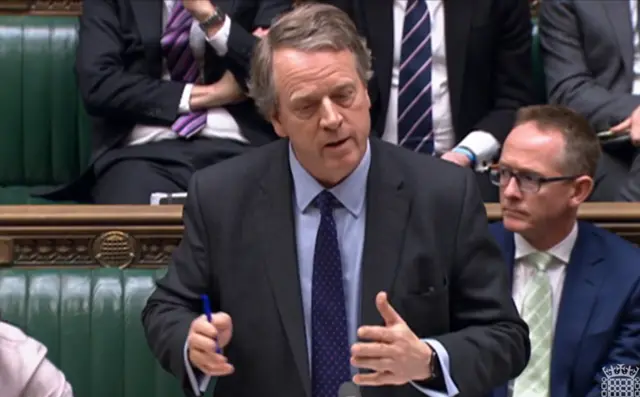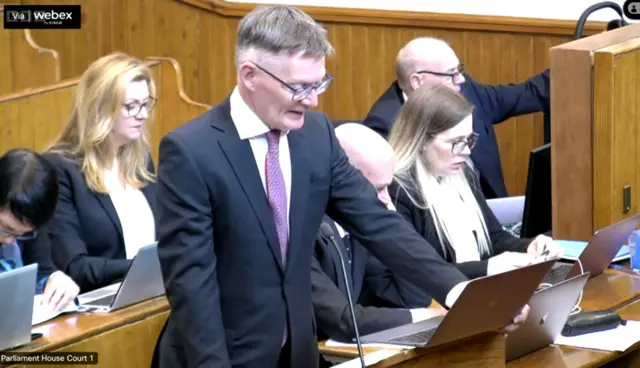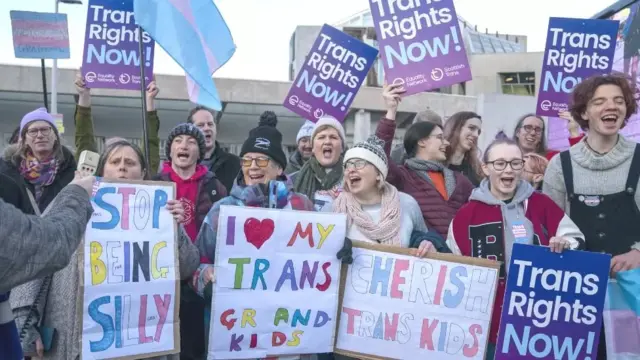The headlines from yesterday's sessionpublished at 10:36 BST 20 September 2023
If you're just joining us, here is a quick catch-up of the main points to come out of yesterday's Court of Session hearing.
- Scotland's top law officer, Lord Advocate Dorothy Bain KC, said the UK government's block on Scottish gender recognition reforms was unlawful
- She said the Court of Session has a "constitutional duty" to review the unprecedented use of a Section 35 Order by Downing Street
- The lord advocate insisted the Scottish Secretary's intervention to veto the bill was politically motivated
- If the UK government is successful, Westminster "could veto practically any act of the Scottish Parliament", Dorothy Bain warned
- Scottish Secretary Alister Jack has raised concerns that it would affect the 2010 Equality Act, which applies in Scotland, England and Wales
You can read a report from yesterday's session here.






